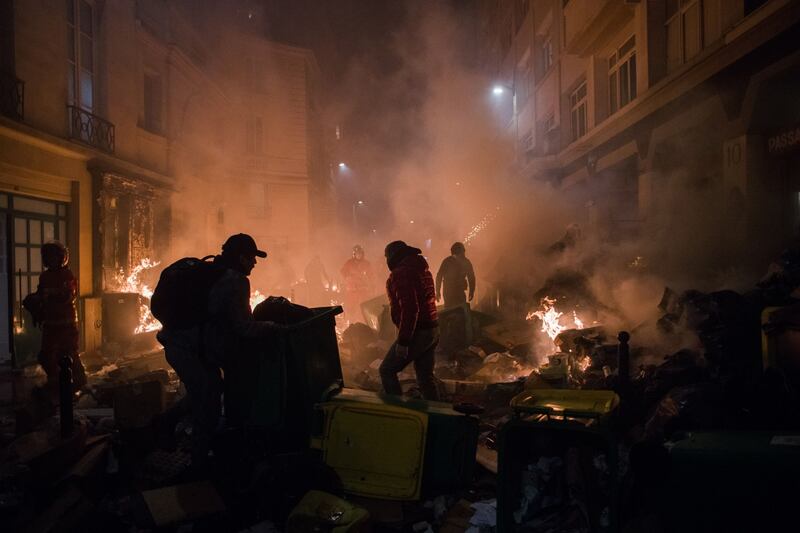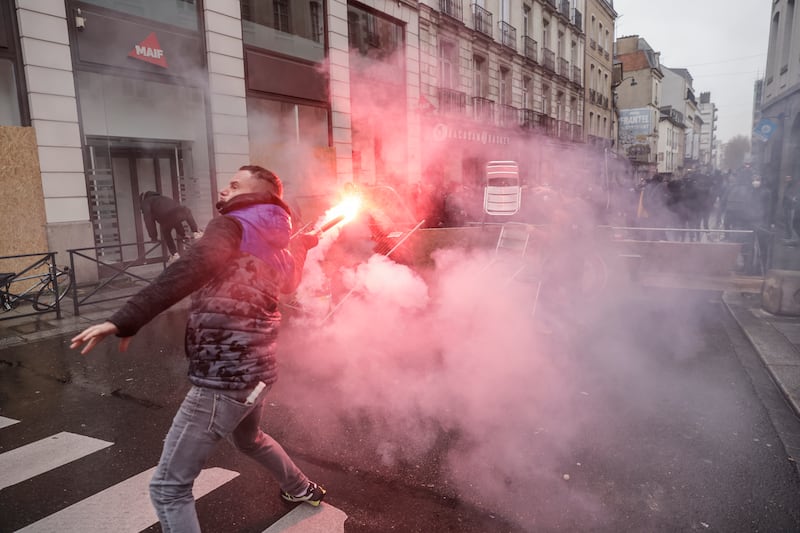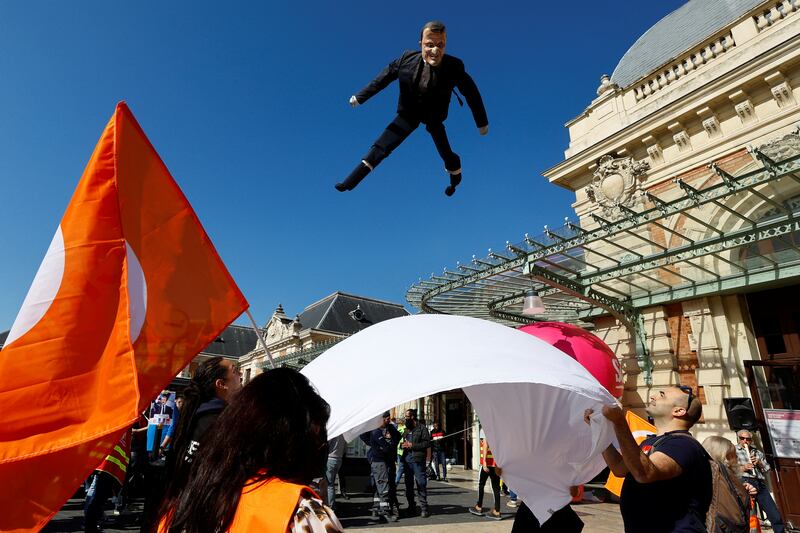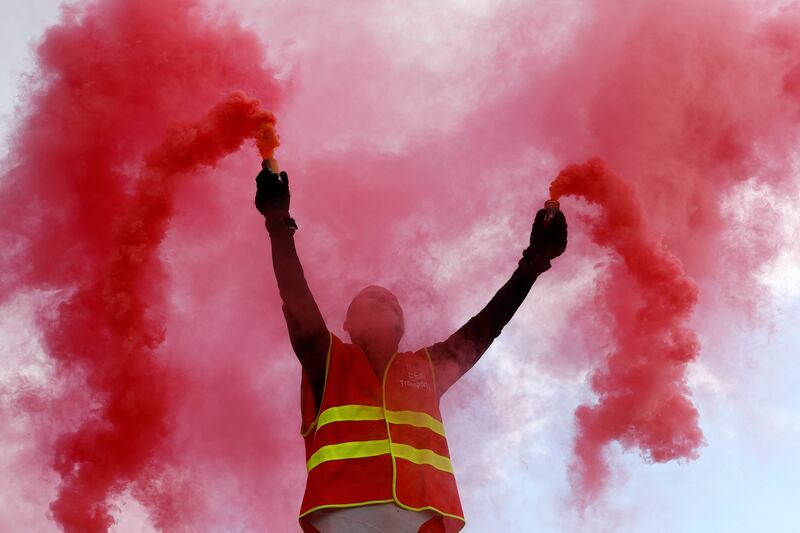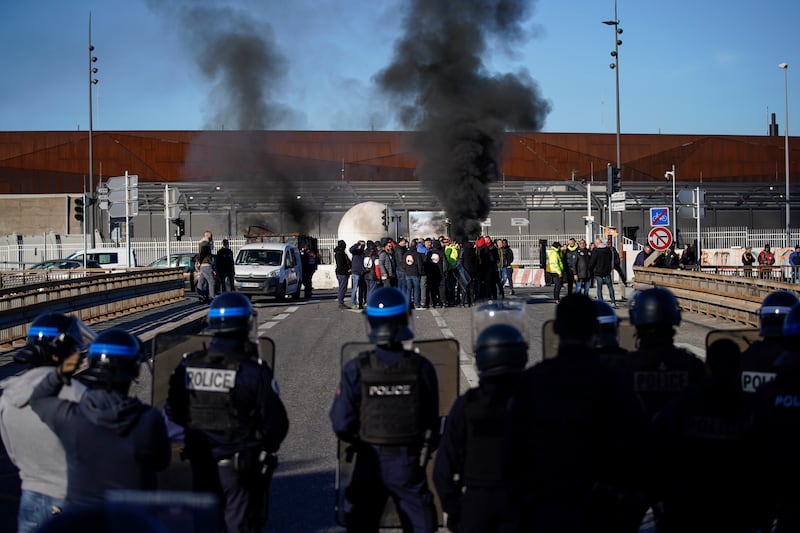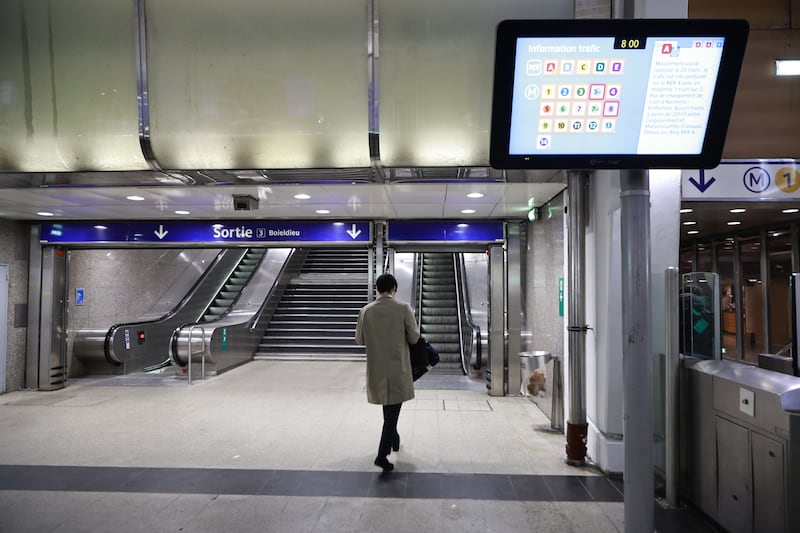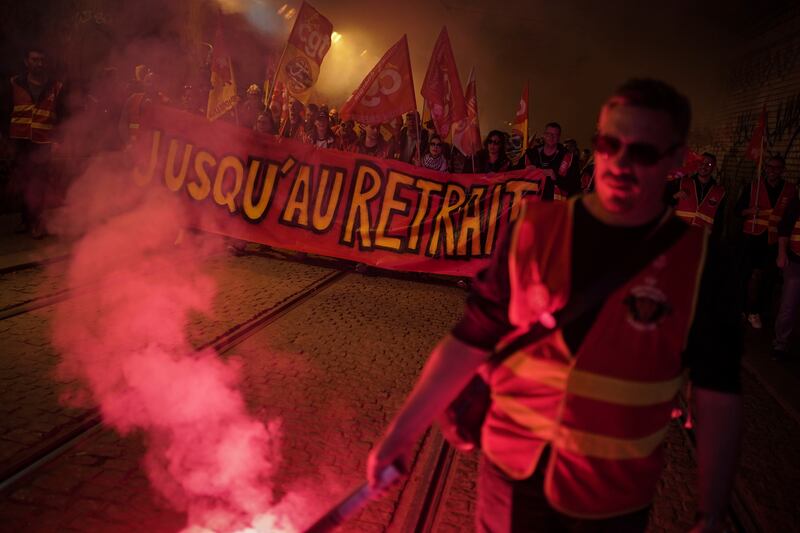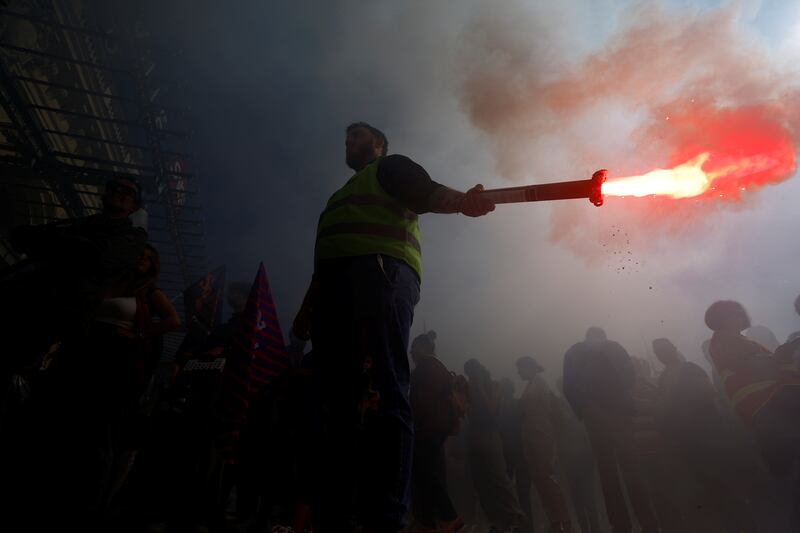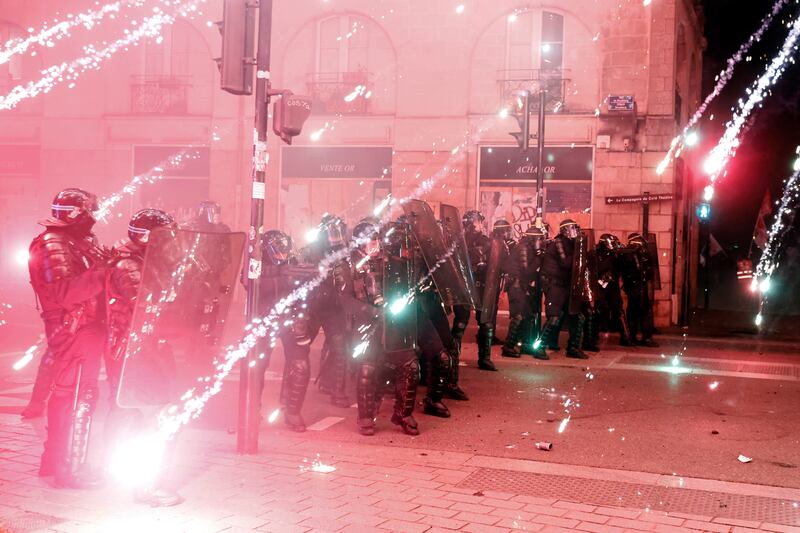France is at boiling point amid mass protests against President Emmanuel Macron’s pension reforms.
Hndreds of people were arrested on Thursday, as nationwide strikes turned into violence in some towns and cities.
Uncollected rubbish was rotting on the streets of Paris and fuel supplies were running low amid strikes at oil refineries.
Mr Macron has done little to appease protesters, insisting his pension bill will pass and refusing to change his top team.
The unrest is set to continue with another strike day on Tuesday calling a state visit by Britain’s Charles III into question.
What are the French protests about?
Unions took to the streets after Mr Macron announced plans to raise France’s retirement age from 62 to 64.
Mr Macron argues the reform is necessary to cut the rising costs of France’s generous welfare state.
But amid protests and strikes, he failed to persuade a majority of National Assembly members to back the measure.
Instead, his government invoked special powers to pass the reform without a vote – intensifying public anger.
Mr Macron’s government survived a no-confidence vote in the assembly, which would have sunk the pension bill.
But protesters charge that the president acted undemocratically and have vowed to continue with their campaign.
As with the Yellow Vest protests that shook Mr Macron’s first term, there are fears the pension row will mushroom into a broader revolt.
Pension reform strikes continue in France - in pictures
What has happened during the protests?
Unions claimed more than three million people turned out to protest during the latest strikes on Thursday.
Interior Minister Gerald Darmanin said police arrested 457 people and 441 injuries were reported to officers.
The town hall in Bordeaux was set on fire and protesters set up a blockade at Paris’s Charles de Gaulle airport.
On the streets, strikes by bin collectors have led to rubbish piling up on pavements and being set on fire by demonstrators.
Spontaneous protests have broken out in Paris after dark, with flares thrown during clashes between demonstrators and riot police.
Blockades at oil refineries have put fuel stocks under pressure and planes are being urged to fill up during foreign layovers.
The strikes also led to one in five schoolteachers missing work on Thursday, the education ministry said.
What has Emmanuel Macron said?
After days of silence on the unrest, Mr Macron weighed in on Wednesday to say he stood by the reform.
In a TV interview he said he took no pleasure in raising the retirement age but that it was “in the higher interest of the nation”.
He also angered opponents by appearing to compare the protests to the attack on the US Capitol on January 6, 2021 and a similar incident in Brazil.
A poll published on Thursday found that 61 per cent of French people thought Mr Macron’s intervention would worsen the public mood.
What happens next?
Unions have called for further protests over the weekend and another nationwide strike on Tuesday, March 28.
It means the strike will coincide with the state visit by Britain’s King Charles III and Queen Consort Camilla – calling their schedule into doubt.
A prolonged battle over the bill will test the willpower of the unions and Mr Macron’s government.

Despite the unrest, Mr Macron plans to sign the bill into law and have it come into force by the end of the year.
He has offered no concessions sought by opponents such as delaying the bill, calling new elections or firing Prime Minister Elisabeth Borne.
Opponents have filed a complaint with France’s constitutional court in a last-ditch attempt to stop the bill.
It could in theory lead to a referendum on the reform, although that would take months.
What strikes are happening across Europe?
In Germany, two unions have announced a “mega strike day” for Monday that is expected to paralyse public transport.
Trains, buses, ports and airports will be affected as workers seek a double-digit pay rise at a time of high energy prices.
Greek rail workers went on strike on March 16 in protest over a train crash that killed 57 people.
Britain has endured months of strikes affecting trains, hospitals, postal deliveries, ambulances and museums.
Prime Minister Rishi Sunak’s government has announced pay deals with health and rail workers in recent days that could ease the unrest.
In Spain, unions struck a deal with the government to reform pensions by raising costs for higher earners.
